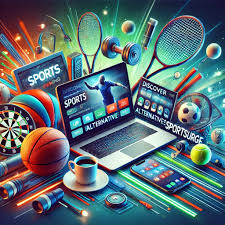Table of Contents
ToggleIntroduction
Depor, a term rooted in Spanish culture, commonly refers to sports, especially soccer, and its passionate followers. It encapsulates a rich cultural phenomenon that transcends the physical activity, blending excitement, identity, and community. Sports fans worldwide resonate with depor, particularly in Spain and Latin American countries. This article delves into the unique world of depor, exploring its cultural impact, the intense fan culture, and how it shapes identities. Moreover, we will also examine depor’s evolving role in modern society, focusing on how it inspires communities.
Understanding Depor: A Glimpse into Sports and Culture
Depor is not just about sports; it reflects a deeper connection between people and shared experiences. In Spain, depor goes beyond a game, intertwining with regional pride, identity, and cultural expressions. Fans passionately support their local teams, seeing them as extensions of their heritage. For example, soccer clubs like Deportivo La Coruña and Real Club Deportivo Espanyol have shaped local pride for decades. These teams represent more than just a sport—they embody a region’s history, values, and aspirations.
The world of depor extends beyond soccer, as other sports like basketball and tennis also enjoy immense popularity. However, soccer remains at the heart of depor culture, bringing together millions of fans. It unites people from diverse backgrounds, providing a shared platform for celebration, competition, and passion. Across generations, depor has become a vital part of social life, creating lifelong memories and friendships.
Depor Fan Culture: Passionate and Unrelenting Support
Depor fans are known for their intense dedication to their teams, forming the backbone of its culture. They are not merely spectators but active participants who shape the narrative of their favorite teams. Whether chanting in the stadium or discussing strategy at local cafés, fans make their presence felt. These communities forge strong bonds based on shared devotion, creating a sense of belonging and unity.
One of the most notable aspects of depor fan culture is the sense of identity it fosters. Fans see their loyalty to a team as an integral part of who they are. In many cases, entire families support a specific club for generations, making the fan culture deeply interwoven with personal and family identity. Moreover, the stadium atmosphere, with its vibrant chants and colors, serves as a powerful symbol of this shared identity.
Even when a team faces adversity, depor fans remain steadfast in their support. They understand that loyalty is not tied to victories alone but to a lasting connection. This unwavering commitment is a hallmark of depor culture, distinguishing it from more casual forms of fandom. Fans continue to engage with their teams throughout ups and downs, contributing to the long-standing traditions surrounding depor.
Depor’s Impact on Communities and Social Dynamics
Depor plays a pivotal role in bringing communities together, serving as a common thread uniting people. It provides an escape from daily challenges, offering a sense of hope and excitement. Many regions rally around their local teams, using depor as a means of collective expression. In rural areas, sports clubs often serve as community hubs, where people gather to socialize and celebrate local talent.
Beyond entertainment, depor also serves as a powerful tool for social change. It creates opportunities for young athletes to rise from disadvantaged backgrounds, opening doors to education and career success. Local teams often participate in community outreach, promoting positive values such as teamwork, perseverance, and leadership. Moreover, depor promotes gender equality by encouraging women’s participation in sports, contributing to societal progress.
By fostering a shared identity, depor helps reduce social divisions, promoting inclusivity and mutual respect. It connects people across social, economic, and ethnic lines, creating a sense of shared purpose. In this way, depor is much more than a sport—it acts as a bridge for understanding and cohesion in society.
The Business of Depor: A Global Industry
While depor has deep cultural roots, it is also an increasingly profitable global business. Sports clubs generate significant revenue through ticket sales, merchandise, broadcasting rights, and sponsorship deals. The most successful clubs, such as FC Barcelona and Real Madrid, have become global brands, commanding massive fanbases worldwide. This commercialization has transformed depor into a major economic force, with top players earning multi-million-dollar salaries.
Furthermore, depor’s economic influence extends beyond the teams themselves, impacting tourism, hospitality, and media industries. Major sporting events, such as soccer tournaments, attract millions of visitors, boosting local economies. Host cities often experience increased tourism and revenue, especially when their teams perform well. Depor has therefore become a driving force behind urban development and infrastructure investment in many regions.
Despite the increasing commercialization, depor remains grounded in its community-focused values. While global brands dominate the market, local clubs continue to play vital roles in preserving the authenticity of depor culture. These clubs serve as the foundation for youth development, ensuring that the next generation can participate in and enjoy sports.
The Evolution of Depor in the Digital Age
The rise of digital media has revolutionized the way fans engage with depor, providing new platforms for interaction. Social media, streaming services, and sports blogs allow fans to follow their teams closely, regardless of geographic location. This digital transformation has widened depor’s global reach, enabling fans from different countries to connect over shared interests.
Additionally, the growth of eSports has expanded beyond traditional sports, blending physical and virtual competition. Fans now follow eSports leagues with the same intensity as they do traditional games, further diversifying the landscape. This shift has created new opportunities for fans to engage with in innovative ways.
The digital age has also brought increased transparency to sports organizations, encouraging greater accountability and ethical practices. Fans now demand more from their clubs in terms of corporate responsibility, environmental sustainability, and social engagement. this teams are increasingly aware of these expectations and are adjusting their practices to align with modern values.
Conclusion
Depor, with its rich blend of sports and culture, remains a cornerstone of societal identity and community cohesion. Its impact goes beyond the field, touching lives through shared experiences, social bonds, and economic growth. As evolves in the digital age, its core values of passion, loyalty, and unity remain unchanged. It continues to inspire generations of fans, bringing people together in celebration and competition. Through this communities find common ground, fostering a collective spirit that transcends the boundaries of sports.











